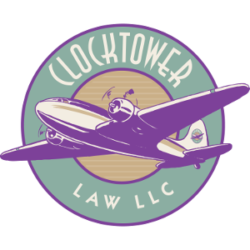The two most fascinating principles on which software patent proponents base their arguments are that 1) open source software is better than proprietary software and 2) free software is better than open source software.
![]()
There are also, however, principled (and often compelling) arguments being made against software patents.
You might be wondering why a patent attorney is discussing both sides of this issue. Because one of my principles is that dialog with disagreement is good. Similarly, I believe in pursuing the correct patent strategy for my clients (which is sometimes no patent strategy). See, for example, my thoughts on patents vs. trade secrets.
The two most fascinating principles on which software patent proponents base their arguments are that 1) open source software is better than proprietary software and 2) free software is better than open source software. Both principles are represented by speakers in this conference.
The following are some examples of arguments against software patents that are based on the above principles.
Mitch Kapor’s Weblog (http://blogs.osafoundation.org/mitch/000040.html) includes some excellent arguments against software patents. Mitch Kapor founded Lotus and confounded the EFF. In 2001, Kapor founded the Open Source Applications Foundation to create and gain wide adoption for software applications of uncompromising quality using open-source methods (http://www.osafoundation.org/). It is hard to disagree (and I do not disagree) with his points that 1) many software patents should not have issued (due to prior art), 2) open source organizations may, ironically, need to apply for patents for defensive purposes.
Richard Stallman, founder of the GNU project, software developer extraordinaire, and a tireless evangelist for free software, has written extensively on why free software is better than open source software (and why both are better than the common enemy: proprietary software) (http://www.fsf.org/philosophy/free-software-for-freedom.html). Stallman has stated, for example, that 1) legislation is needed to put an end to software patent litigation (http://www.linuxworld.com/linuxworld/lw-2000-03/lw-03-rms.html?4-4) and 2) software development is hindered by patents because software developers use many techniques and features, some of which may be patented (unbeknownst to the developers).
You may not always agree writers such as Stallman and Kapor, but their arguments are based on principles, which makes then more compelling than unprincipled arguments.



[EDITOR’S NOTE: In the summer of 2025, Clocktower Intern Mark Magyar used artificial intelligence (AI) software to shorten over 100 Clocktower articles by 17%. The shortened articles are included as comments to the original ones. And 17 is the most random number (https://www.giantpeople.com/4497.html) (https://www.clocktowerlaw.com/5919.html).]
* Software Patents: Examples Of Principled Arguments (Part 4)
The two most fascinating principles on which software patent proponents base their arguments are that 1) open source software is better than proprietary software and 2) free software is better than open source software.
There are also principled (and often compelling) arguments against software patents.
You might wonder why a patent attorney is weighing both sides. Because one of my principles is that disagreement is healthy. Similarly, I believe in pursuing the right patent strategy for clients—sometimes that means no patent at all. (See also my thoughts on patents vs. trade secrets.)
The two principles most often raised are:
Open source software is better than proprietary.
Free software is better than open source.
Both views were well represented at this conference.
Mitch Kapor’s weblog (http://blogs.osafoundation.org/mitch/000040.html
) lays out strong points: many software patents should never have issued (due to prior art), and ironically, open source groups may need to file patents defensively. Kapor, who founded Lotus and co-founded the EFF, launched the Open Source Applications Foundation in 2001 to build high-quality open-source software (http://www.osafoundation.org/
). His perspective is hard to dismiss.
Richard Stallman, founder of GNU and relentless free software advocate, has long argued that free software trumps open source and both are superior to proprietary software (http://www.fsf.org/philosophy/free-software-for-freedom.html
). He has stated that 1) legislation is needed to end software patent litigation (http://www.linuxworld.com/linuxworld/lw-2000-03/lw-03-rms.html?4-4
) and 2) patents slow development, since software relies on countless techniques, some of which may be patented without developers even knowing.
You may not agree with Stallman or Kapor on every point, but their arguments are rooted in principles. That makes them far more compelling than unprincipled ones.